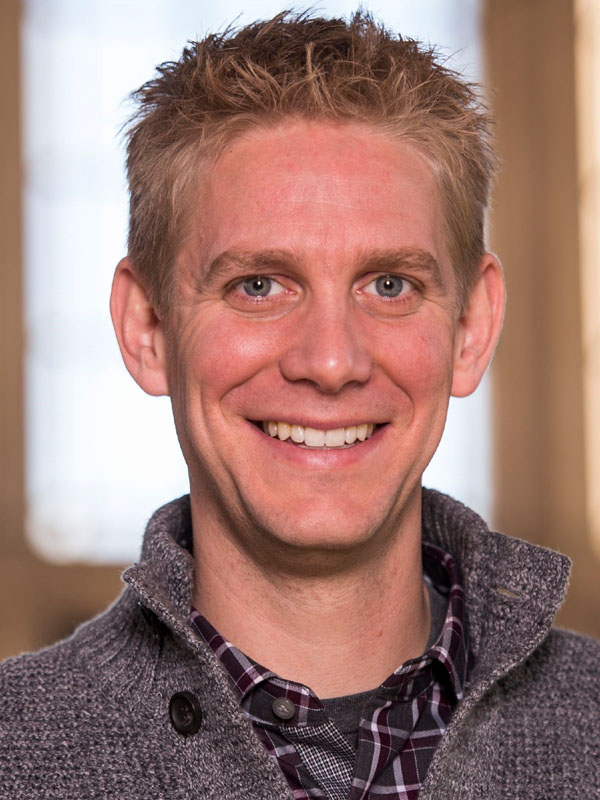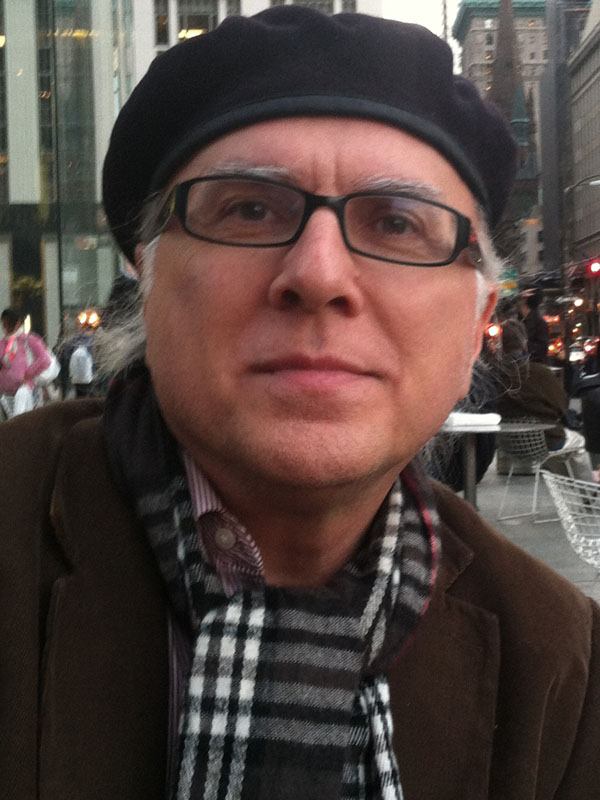
Dr. Abram Van Engen, associate professor of English and a faculty affiliate in the John C. Danforth Center on Religion and Politics at Washington University in St. Louis, will speak on early American religion, politics and literature at 9:15 a.m. Friday, Sept. 29, in the Blue Ridge Ballroom of Appalachian’s Plemmons Student Union. Photo submitted
BOONE, N.C. — The Humanities Council under the College of Arts and Sciences at Appalachian State University will present a symposium titled “Sustaining Democracy: Existence, Persistence, Resistance” from 9 a.m. – 4 p.m., Friday, Sept. 29, in the Blue Ridge Ballroom of Appalachian’s Plemmons Student Union. Admission is free and the event is open to the community.
The speakers are:
- Dr. Abram Van Engen, associate professor of English and a faculty affiliate in the John C. Danforth Center on Religion and Politics at Washington University in St. Louis;
- Dr. George T. Pappas, an attorney from Asheville, representing clients in U.S. immigration law, criminal law, family law and civil litigation; and
- Dr. Timothy Snyder, the Richard C. Levin Professor of History at Yale University and a permanent fellow at the Institute for Human Sciences in Vienna.
The goal of the symposium is to promote a dialogue that explores the various meanings of democracy and the experiences of multiple populations such as: the difference in European-American experiences of democracy and those of historically marginalized populations; resistance movements and their role in shaping and limiting democratic possibilities; the sustainability of western democracy; and the future of possible alternative methods of democracy.
Van Engen will kick off the event at 9:15 a.m. with his talk on “National Purpose.” His work focuses on early American religion, politics and literature, along with the changing cultural memories and consequences of early America on the modern day. Van Engen is the recipient of numerous awards, including the Walter Muir Whitehill Prize in Early American History and a faculty fellowship from the National Endowment for the Humanities. His next book, “American Origin Stories: How the United States Became the City on a Hill” (Yale University Press), offers a broad story about the rise of American exceptionalism and its rhetoric from the Puritans to the present day.
Pappas’ talk, “The Marshall Trilogy to Standing Rock,” begins at 10:45 a.m. Pappas represents clients on immigration appeals before the Board of Immigration of Appeals, the Administrative Office of Appeals and U.S. Federal Courts, and is admitted to practice law in Massachusetts, the Fourth Circuit Court of Appeals and the U.S. Supreme Court. He is also a member of the Cherokee Supreme Court (Eastern Band). In addition to practicing law, Pappas has researched and written a book, “The Literary and Legal Genealogy of Native American Dispossession – The Marshall Trilogy Cases 1823-1832” (The Francis & Taylor Group), explaining how the U.S. Supreme Court blurred the distinction between literature and law, especially colonial literature, to dispossess Native Americans of their land.
Snyder will close the symposium with his topic, “On Tyranny: Twenty Lessons from the Twentieth Century,” at 2:30 p.m. Before joining the faculty at Yale in 2001, he held fellowships in Paris, Vienna and Warsaw, and an Academy Scholarship at Harvard. He speaks five and reads 10 European languages. Among his publications are six single-authored books, including “Bloodlands,” which won 12 awards including the Emerson Prize in the Humanities, a Literature Award from the American Academy of Arts and Letters, the Leipzig Award for European Understanding and the Hannah Arendt Prize in Political Thought. It has been translated into 33 languages, was named to 12 book-of-the-year lists, and was a bestseller in six countries. His most recent book, “On Tyranny: Twenty Lessons from the Twentieth Century,” arrived in the United States in February and will be available in numerous foreign editions.
Also during his visit, Snyder will host a separate discussion Sept. 29 of “Black Earth: The Holocaust as History and Warning,” sponsored by the Center for Judaic, Holocaust and Peace Studies. As the date approaches, additional information will be available through the center at http://holocaust.appstate.edu.
In conjunction with the symposium, there will be a series of book discussions on Snyder’s book, “On Tyranny: Twenty Lessons from the Twentieth Century,” over the course of four weeks leading up to and following the symposium.
The book discussions and Snyder’s visit are made possible by Appalachian’s College of Arts and Sciences, the Humanities Council, Belk Library and Information Commons, the Center for Judaic, Holocaust and Peace Studies, The Honors College, Reich College of Education, Academic Affairs and the following academic departments: Anthropology; Cultural, Gender and Global Studies; History; Geography and Planning; Communication; Art; Philosophy and Religion; Government and Justice Studies; Sociology; and English.
For the full timeline of events or for more information about the symposium, visit the Humanities Council website at http://humanitiescouncil.appstate.edu.
About the Humanities Council
Appalachian State University’s Humanities Council provides interdisciplinary opportunities and events on campus throughout the year, promoting the importance of the humanities in relationship to other fields.
About the College of Arts and Sciences
The College of Arts and Sciences (CAS) at Appalachian State University is home to 17 academic departments, two centers and one residential college. These units span the humanities and the social, mathematical and natural sciences. CAS aims to develop a distinctive identity built upon our university's strengths, traditions and locations. The college’s values lie not only in service to the university and local community, but through inspiring, training, educating and sustaining the development of its students as global citizens. More than 6,800 student majors are enrolled in the college. As the college is also largely responsible for implementing App State’s general education curriculum, it is heavily involved in the education of all students at the university, including those pursuing majors in other colleges. Learn more at https://cas.appstate.edu.
About Appalachian State University
As a premier public institution, Appalachian State University prepares students to lead purposeful lives. App State is one of 17 campuses in the University of North Carolina System, with a national reputation for innovative teaching and opening access to a high-quality, cost-effective education. The university enrolls more than 21,000 students, has a low student-to-faculty ratio and offers more than 150 undergraduate and 80 graduate majors at its Boone and Hickory campuses and through App State Online. Learn more at https://www.appstate.edu.
What do you think?
Share your feedback on this story.



![How NCInnovation Is Rethinking Economic Development in North Carolina [faculty featured]](/_images/_posts/2026/02/rethinking-economic-development-600x400.jpg)









